To declare a bias, I’m not exactly fond of Dr Jon Pike, who judging by his Twitter feed, has just one hobby – being hostile to trans women. I suspect Jon is not that keen on me, either.
Jon has a specific interest in “saving women’s sports” and often aligns in this issue with some people who may be considered transphobic, meaning discriminatory against trans people – specifically trans women.
The “saving women’s sports” trope suggests that hordes of trans women have, can or will dominate women’s sports is wearing thin these days – indeed, we can look back over twenty years and not find one significant trans woman athlete.
In the UK, figures supplied (relevant to 2021) showed there were just 63 trans athletes (both trans men and trans women) who had applied for inclusion in their chosen sport, the vast majority likely to be at a grassroots level.
In comparison, some 32,213,036 cisgender people were also participating in sports – consequently, 63 individuals are, frankly, chicken feed, and they should be celebrated for their bravery given that Galop reports that 50% of trans people experience transphobia every year just walking in our streets.
Sure, there has been an odd win like that of Lia Thomas, who won an American university Championship. Still, if you can name any currently highly successful trans woman elite athlete in mainstream sports in the world just now, I would be very impressed – because there simply isn’t one.
Discrimination against trans women is sometimes necessary for various reasons, provided they are proportionate to achieve a legitimate aim, as rightfully set out in the Equality Act 2010. Indeed, when it comes to prisons, I would never advocate that trans women convicted of sex offences should be held in the female estate. I also agree that, on occasion, if it is not possible to compete fairly and safely, a trans woman should not compete in the female sports category. But effectively, “blanket bans”, like that recently imposed by World Athletics, are likely illegal and need testing in court.
In Jon’s article for Sex Matters, published on March 24th, he doesn’t tell the whole story regarding trans women competing in sports. For example, he states:
Another key new development has been a sort of quietening on the scientific front. Although you still get the odd tortuous opinion piece trying to make the implausible claim that testosterone suppression can remove male advantage, most of the serious people have given up on that claim. Instead, they tend to argue that, even though transwomen have residual male advantages, it can still be fair for them to compete in the female category.
What Jon doesn’t say is that in November 2022, the Canadian Centre for Ethics in Sport (CCES) debunked every piece of research published over the last decade. I say “every” with tongue in cheek because CCES say only three research papers have been published that involved trans women athletes.
One of the research articles that CCES tore apart was that from Emma Hilton and Tommy Lundberg. Coincidentally Ms Hilton is a Director of Sex Matters. Unlike me, in this piece, Emma, it would appear, failed to declare a conflict of interest later replying to the allegation saying by way of the publisher:
EH and TL have given talks and engaged in the mainstream media and academic press regarding the biology of sex and how they have concluded that this should impact sporting categories. All dissemination or engagement, irrespective of the medium, has been guided by their education, disciplinary training, and research findings. The authors assert that this does not constitute a conflict of interest. Rather, it is an essential part of their academic freedom and their obligation to engage, publicly, in such discussions.
In short, Hilton and Lundberg appear to rely upon the fact that they are academics and, apparently, like politicians, are claiming “parliamentary privilege”.
But back to Jon and that paragraph saying these words:
Although, you still get the odd tortuous opinion piece trying to make the implausible claim that testosterone suppression can remove male advantage.
Frankly, this is nonsense, and in some events, such as diving (trans women are currently banned in the female category), any male puberty advantage (if it exists) is irrelevant. Diving is certainly one event where everyone can compete together, and there are more.
Looking more closely at Lia Thomas, in May 2022, The Independent Newspaper published an article with the headline, “Critics accuse trans swimming star of having an unfair advantage. The data tells a different story“.
Indeed, the headline tells the truth – and in my opinion, Lia should have been celebrated but, instead, was castigated by the right-wing press and many sex-based rights groups.
Wikipedia says this: “Lia Thomas is an American swimmer who lost muscle mass and strength through testosterone suppression and hormone replacement therapy. Her time for the 500 freestyle is over 15 seconds slower than her personal bests before medically transitioning.
More evidence of how testosterone suppression affects exceedingly fit people comes from the US Airforce, which, over four years, monitored the effects of Gender Affirming Hormone Therapy (GAHT) on service personnel. They concluded that after two years, the advantages of puberty were neutralised once trans women undertook GAHT. The slide in the image above compares performance both for trans men and women during GAHT.
Jon goes on to state this:
Everyone should be welcomed into sport, of course, and everyone must have a fair category in which to compete. This can be done with a two-category model: a female category – which excludes anyone with male advantage; and an open category for absolutely anyone who wants to compete in it.
I agree that “everyone should be welcomed into sport”, but let’s be clear testosterone-suppressed trans women haven’t a snowball’s chance in hell of competing with men in the vast majority of sports events. If Jon Pike doesn’t know that, he should not, in my opinion, author articles on this issue.
Quite obviously, open events would never be fair for testosterone-surpressed trans women or women athletes born with Disorders of Sex Development (DSD), who often find themselves excluded or forced to change to weaker events because of high testosterone (T) levels.
In the last Olympics, as a way to react to similar issues surrounding the intersex athlete Caster Semenya, World Athletics rules stipulated that all women competing in races between 400 meters and a mile were required to have testosterone levels below 5 nanomoles per litre. The result of this was that six “high T” DSD athletes (strangely all non-white) were banned or forced to change to other events.
If T levels are such an important issue of fairness ‘protecting the integrity of women’s sport’, why was this only adopted in this narrow area affecting only a couple of events, and how come women with PCOS, who are statistically overrepresented in the elite level of sport, who have an advantage of high T levels yet compete without issue?
Why is the ‘fairness’ target only ever aimed at trans women and those who are DSD/ intersex?
There might be merit in looking at options to create handicap events based on previous performances to include men, women, trans people together with, women with DSD and, where possible, wheelchair athletes. Not all sports could go in this direction, but some could, although this should not be used to remove trans women from fair and safe inclusion in conventional competition where possible. I discussed this suggestion along with one other idea in my University of New England Discussion event with Carole Hooven, PhD.
Everyone has a human right not just to compete but also to have a fair chance of winning, and it’s great that at least some trans men are getting a chance to compete in sports. Trans men like Patricio Manuel seen here demolishing a cisgender man in the boxing ring.
Perhaps Jon and his compatriots at Sex Matters et. al would like to tell Patricio that “sex is immutable” to his face?
@fallon_fox Patricio Manuel just crushed ANOTHER cisgender man and mainstream media wont report about it #TransAthletes #TransFighters #trans #transgender #TransgenderRights #transrights #TransPOC
The issue of trans women competing in the female category of sport is both contentious and toxic. So toxic in the UK, thanks to a transphobic press, that I recognise it is invariably not “sellable” to the British public in the current sporting formats.
Still, the human rights of one individual are equal to another, whatever sex you are.
That is where I and those who have campaigned against trans women’s inclusion in the female category of sports vehemently differ.
Steph Richards authors this opinion article – they are not the views of the TransLucent.Org.UK.
Dr Pike and Sex Matters were contacted and invited to respond.




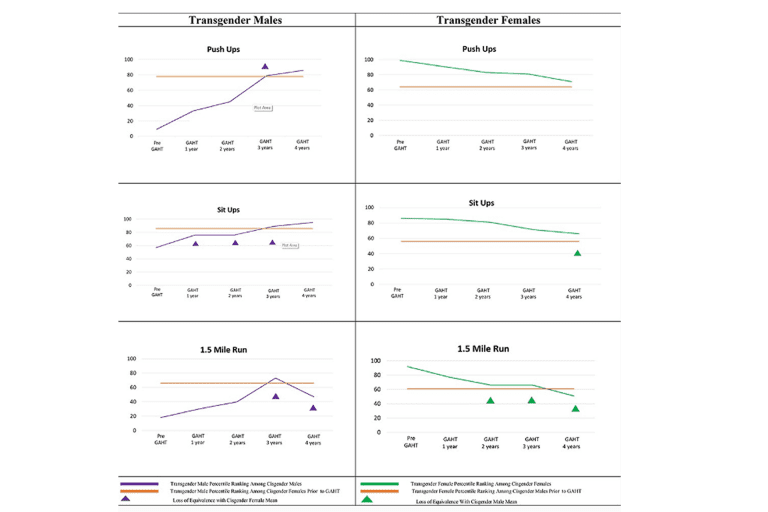
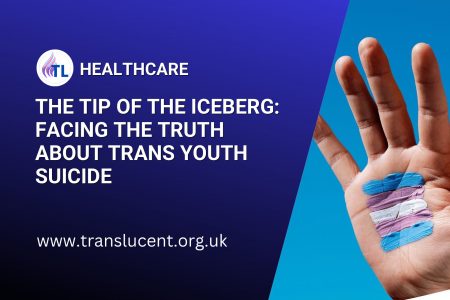
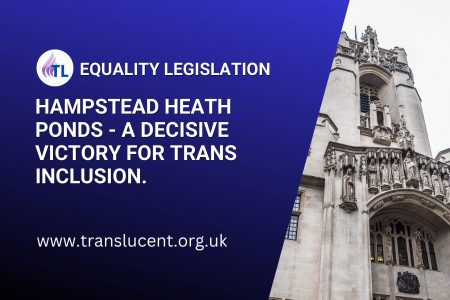
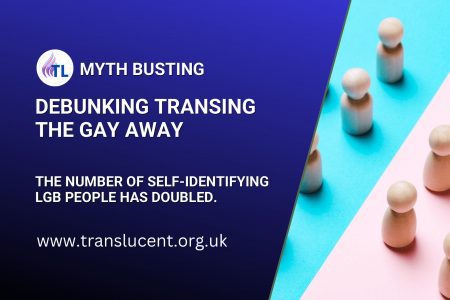

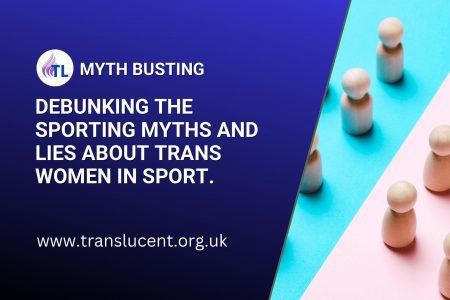

 To provide the best experiences, we use technologies like cookies to store and/or access device information. Consenting to these technologies will allow us to process data such as browsing behaviour or unique IDs on this site. Not consenting or withdrawing consent, may adversely affect certain features and functions.
To provide the best experiences, we use technologies like cookies to store and/or access device information. Consenting to these technologies will allow us to process data such as browsing behaviour or unique IDs on this site. Not consenting or withdrawing consent, may adversely affect certain features and functions.